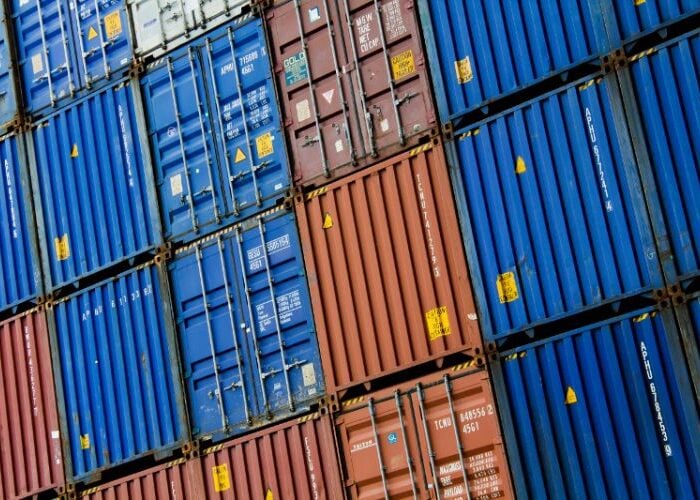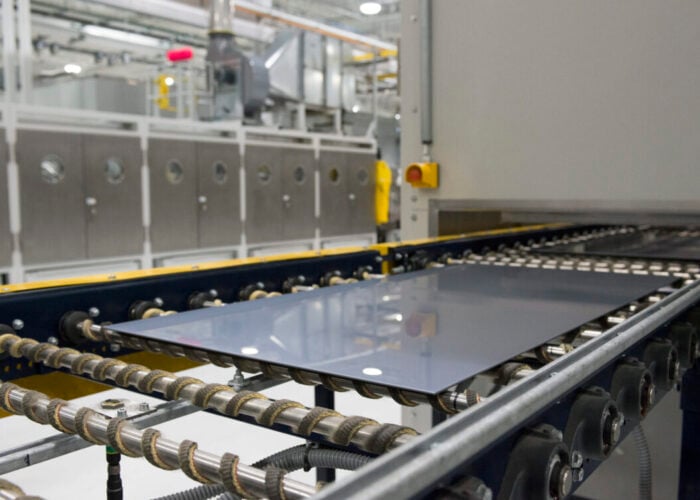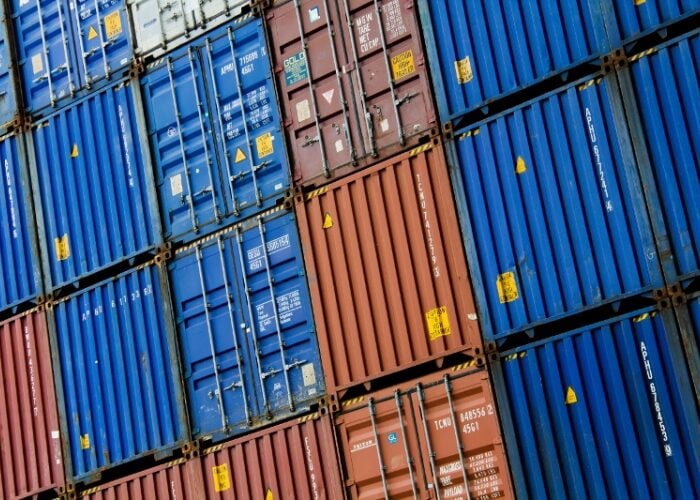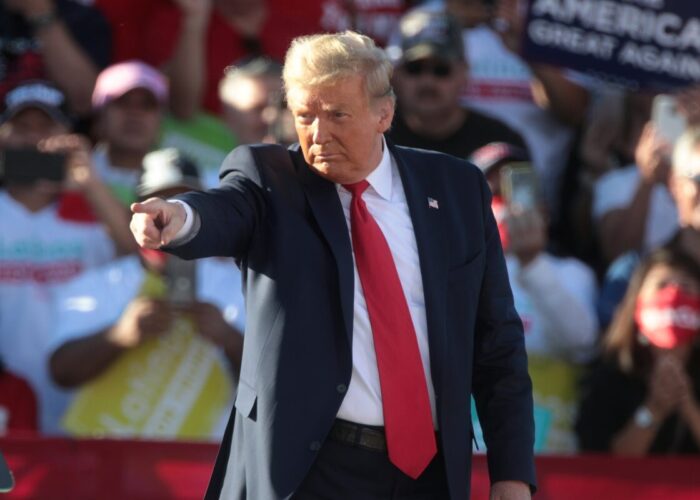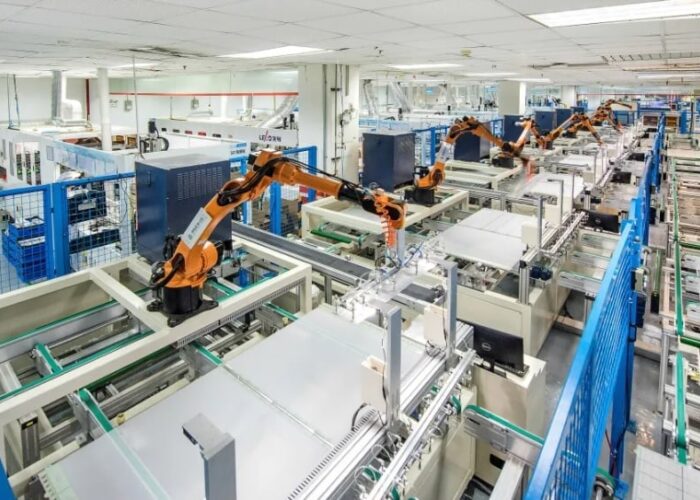
The US Department of Commerce (DOC) has issued a final rule designed to tighten up the anti-dumping and countervailing duty (AD/CVD) regulations.
This final ruling largely adopts the DOC’s rules proposed in May 2023, with minor revisions aimed to “enhance, improve and strengthen” the enforcement and administration of the AD/CVD laws.
Unlock unlimited access for 12 whole months of distinctive global analysis
Photovoltaics International is now included.
- Regular insight and analysis of the industry’s biggest developments
- In-depth interviews with the industry’s leading figures
- Unlimited digital access to the PV Tech Power journal catalogue
- Unlimited digital access to the Photovoltaics International journal catalogue
- Access to more than 1,000 technical papers
- Discounts on Solar Media’s portfolio of events, in-person and virtual
Among the changes introduced is a regulation that seeks to address recent federal court holdings that have limited the DOC’s ability to assess the impacts of changes to markets. In the final rule, the DOC lists examples of particular market situations that distort the cost of production, such as overcapacity and oversupply, subsidies and duty exemptions.
Moreover, the final ruling removes the DOC’s prohibition around transnational subsidies, where a government provides benefits to a different country. Law firm Wiley Rein explained that the DOC could potentially countervail programmes, such as China’s Belt and Road Initiative programme, and that the previous interpretation of the law was more restrictive, as transnational subsidies are more common now than they used to be.
Finally, the DOC recognised that lax, ineffective, or non-existent government regulations regarding human rights, labour rights or environmental protections allow foreign competitors to produce merchandise at lower costs than if effective laws were in place.
“The purpose of these modifications and additions to our regulations is to improve, strengthen and enhance the enforcement and administration of the AD/CVD laws, make such enforcement and administration more efficient, and to address factors which distort costs and prices — factors that make the ‘playing field’ less ‘level’ for domestic interested parties and can contribute to unfair trade,” reads the final ruling from the DOC published on Monday 25 March.
The new amendments will go into effect on 24 April 2024. The final ruling from the DOC about AD/CVD laws can be accessed here.
SEMA Coalition calls for ‘level playing field’ on solar manufacturing
This has been a busy week at the policy level in the US, with two senators – Jon Ossof and Reverend Raphael Warnock – urging the US president, Joe Biden, to lift off an ongoing tariff exemption on bifacial modules. In a letter to Biden, the senators said: “Removing this exemption would alleviate pricing pressure and bolster the growth of an important US industry.” According to the senators, bifacial modules represent nearly 90% of PV module imports.
On Wednesday 27 March, the Solar Energy Manufacturers for America (SEMA) Coalition urged the Biden Administration to “level the playing field” for the US solar industry, after a visit from treasury secretary Janet Yellen to solar cell manufacturer Suniva, which signed a solar cell supply agreement with module manufacturer Heliene.
Mike Carr, executive director of the SEMA Coalition, said: “We applaud secretary Yellen for highlighting the unlevel playing field from which Chinese-headquartered manufacturers are currently benefiting. While the critical incentives in the Inflation Reduction Act have gotten US solar manufacturing back in the game, it’s clear China is not going to give up its market dominance willingly.”
Earlier this month, the SEMA Coalition published a report that highlighted this issue, with the coalition calling for a strengthening of the domestic supply chain to produce components in the US.
“We also need the Treasury Department to recognise that their current domestic content bonus guidance reinforces the unlevel playing field. We cannot have a sustainable solar manufacturing sector in this country until we break China’s monopoly on wafer supply, which gives cell manufacturers no alternatives,” said Carr.
Auxin’s AD/CVD solar investigation
In February 2022, when California-based solar manufacturer Auxin Solar asked the DOC to investigate whether Southeast Asia-based companies were circumventing the duties on cells and modules imported from China. The move came three months after the DOC rejected another petition, requesting investigations into alleged AD/CVD circumvention, with the department noting the anonymity of the petitioners.
At the time, the manufacturer requested that the DOC carry out anti-circumvention inquiries into assemblers of crystalline silicon PV (CSPV) cells and modules in Malaysia, Thailand, Vietnam and Cambodia, which it alleged used affiliated Chinese input suppliers and a fully integrated Chinese supply chain to circumvent the orders. The DOC launched the investigation the following month, in March 2022.
As the investigation was ongoing, Biden waived tariffs on solar imports from Southeast Asia in June 2022 for a duration of two years, until June 2024, in a move to boost renewables deployment in the US. The announcement was warmly received by the US solar lobby, which actively and vociferously campaigned against the investigation.
Abigail Ross Hopper, president and CEO at the Solar Energy Industries Association (SEIA), described the intervention as a “much-needed reprieve from this industry-crushing probe”.
Later in 2022, the DOC revealed that imports of some PV cells and modules produced in four Southeast Asian countries were circumventing AD/CVD orders on solar cells and modules from China. Over 20 companies were found to be evading tariffs with only four not circumventing them: New East Solar (based in Cambodia), Hanwha Qcells (Malaysia), JinkoSolar (Malaysia) and Boviet Solar Technology (Vietnam).
The following month, in January 2023, US lawmakers from both sides of the US House of Representatives issued a resolution to repeal the waiver on solar import tariffs from Southeast Asia. The objection was introduced under the Congressional Review Act, which allows Congress to repeal executive decisions if a simple majority is reached and passed within 60 days. Congressman Dan Kildee, one of the principal lawmakers involved, cited the need to support and bolster US solar manufacturing and accelerate independence from China as the driving force behind the resolution.
The vote was passed in both chambers, with the US Senate passing it in May, although the removal of the waiver was short lived as Biden vetoed the proposal by the Senate and the House of Representatives.
This decision came a month after more than 400 US solar companies sent a letter to Congress advising against the repeal of the waiver in the first place, as it would have incurred in over US$1 billion in retroactive duties paid on imports for 2022-23 and caused the cancellation of around 4GW of planned projects this year, according to data from SEIA.
‘Can you get your modules into the country?’
A further ruling came in August 2023, which found that five solar PV manufacturers had been circumventing import tariffs by relocating minor portions of their supply chains to Southeast Asia.
In its final determination on the AD/CVD tariffs in August 2023, the DOC found that Trina Solar, Canadian Solar, BYD Hong Kong, New East Solar and LONGi-owned Vina Solar had been shipping some of their products through Thailand, Cambodia and Vietnam for “minor processing” before shipping them to the US.
Soon after that ruling, renewables consulting and research company Exawatt explained in a conversation with PV Tech Premium that the Uyghur Forced Labour Prevention Act (UFLPA) would end up having a longer lasting impact, in terms of pricing, than the AD/CVD ruling.
“The big thing that in my mind really is dominating the US pricing is UFLPA, and can you get your modules into the country?” explained Alex Barrows, head of PV at Exawatt.
“And how are you getting them into the country? Through the luck that they don’t happen to have been stopped and checked, or through actually having paperwork that customs will accept where they stop, they check, and then they let you through. That risk premium is mostly around that.”
Finally, late last December, Auxin sued the DOC and the US Customs and Border Protection (CBP) over the AD/CVD waiver, alleging that these two entities failed to collect payments and credits relating to the AD/CVD tariffs on solar imports.

